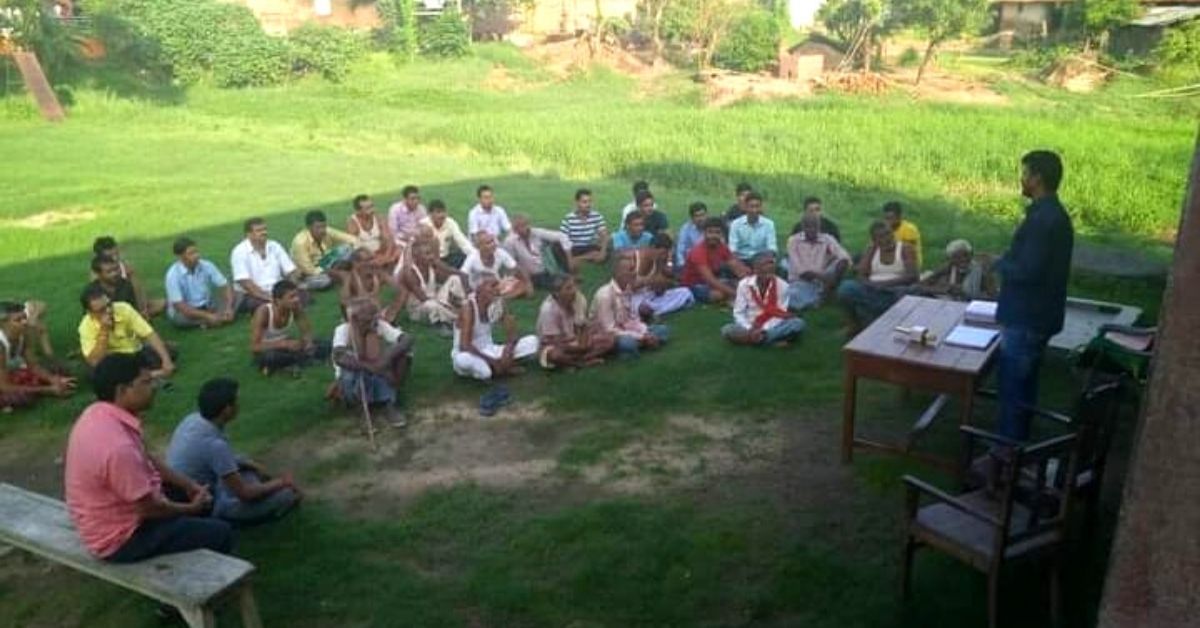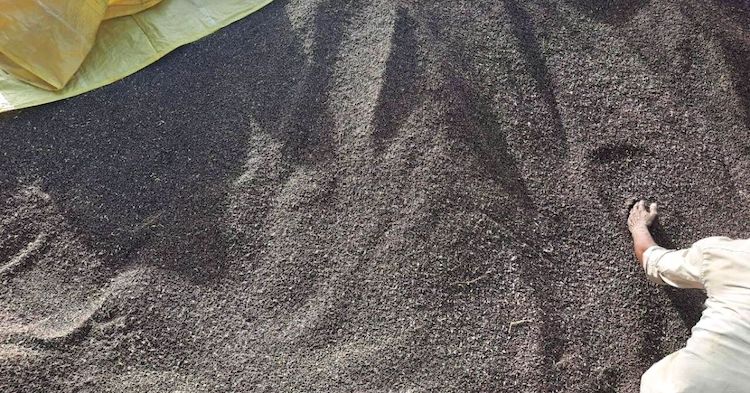Here’s Why This Man is Convincing 1000s of Bihar Farmers to Grow Black Rice & Wheat
Bihar farmers are growing black wheat, black rice and exotic fruits, boosting their incomes and bringing innovation to the farming sector

There is a high chance that the black rice in your kitchen may have its origins in Bihar. That’s because thousands of farmers in Bihar are now giving up traditional cropping patterns, and looking for better options.
“I was sceptical experimenting with a new variety of rice. But interactions with scientists and knowing the nutritional value of the black rice, I decided to try growing it in half an acre of land,” says Biru Singh, a farmer in Bihar.
Biru says the experiment required less water for growth and the produce is good.
Biru has also tried cultivating black wheat variety. “The experts confirm that black wheat is rich in anti-oxidants and good for diabetic people, along with other health benefits. It also received good returns,” he added.
Like Biru, there are about 5,000 farmers in Bihar who are connecting with Awaz Ek Pahal, an NGO working to change the farming habits of farmers for the last few years. They are also growing exotic fruits like kiwis, dragonfruit, strawberries among others.
Luvkush, a member of the organisation, says the farming sector is in poor condition in Bihar and there is a need to revamp it.

“Since the year 2005, there is no government market, the irrigation techniques used are poor, and the government agriculture institutions have failed to connect with the farmers and support in technical know-how,” Luvkush said.
The member, also a science graduate working to popularise science among school children and locals, said, “According to the reports of the central government, there are about one crore farmers in Bihar, and about five crore people depend on agriculture. The average basic income of these farmers is about Rs 3,500.”
To improve these conditions, Luvkush, along with some other members, tried to reach out to farmers hoping to bring innovations to the sector.
“Our organisation was already connected to people since 2016 for help during the floods and other social causes. In 2018, we decided to reach out to farmers and succeeded in connecting with few,” he added.
Luvkush said scientists were invited for visits to explain techniques and share necessary knowledge and training.
“Farmers who succeeded in growing these varieties were called to share their experiences. These efforts convinced the farmers to a large extent,” he added.
The organisation member said farmers who could afford to try out new ideas used small portions of their land and saw brilliant results.
“Some farmers doubled their income in the given space and became confident about the new varieties,” he added.

Lukush said 25,000 farmers this year produced about 40 tonnes of black rice seeds and sent those across India for cultivation. “It is the first time in years that farmers from Bihar have been able to send any farm produce outside the state,” he added.
Along with black wheat and black rice, which are a success, the farmers are also growing exotic fruit varieties and also working to conserve traditional crops lie Chinna (a local gram), Rag, Kodu rice and millets.
“We also help farmers to market the products. There is a small number of farmers which are benefitting, and many more should reap benefits of something that has a market value of Rs 300 a kg,” Luvkush says.
Jitendra Singh, another farmer, said he belongs to a part where progressive methods are used. “We grow basmati and other varieties of rice. But the black rice grown in half an acre has given a bigger boost to the growth,” he added.
Ghanshyam Kumar, a farmer from Vikram village, says his farm reaped 400 kg of black wheat. “The variety is so good that I kept a portion for my family and relatives. I have learned its health benefits on social media and watched many YouTube videos,” he added.
(Edited by Vinayak Hegde)
If you found our stories insightful, informative, or even just enjoyable, we invite you to consider making a voluntary payment to support the work we do at The Better India. Your contribution helps us continue producing quality content that educates, inspires, and drives positive change.
Choose one of the payment options below for your contribution-
By paying for the stories you value, you directly contribute to sustaining our efforts focused on making a difference in the world. Together, let’s ensure that impactful stories continue to be told and shared, enriching lives and communities alike.
Thank you for your support. Here are some frequently asked questions you might find helpful to know why you are contributing?


This story made me
-
97
-
121
-
89
-
167













